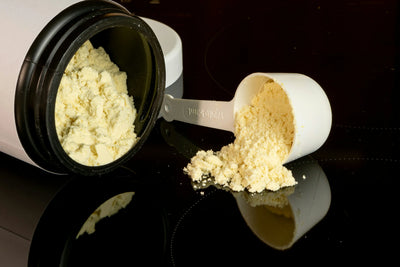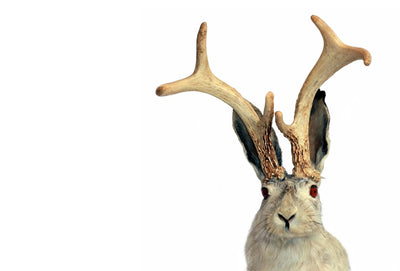Introduction
Most dogs poop daily, and pet parents rarely give it a second thought until something unusual catches their eye. A shift in stool color, like dogs poop black, can signal an issue with your dog’s gastrointestinal health. If you’re noticing black dog poop, you likely have questions about what’s causing it.

Learn what black dog poop means, how probiotics for dogs [9] like Noora Probiotic Supplement can support dog gut health, and practical steps to keep your dog’s stools healthy.
Black Dog Stool: Colors and Textures
Black dog poop [1] can vary in appearance and texture, each offering clues about your dog’s health. Understanding these variations can help identify whether the cause is benign or serious, guiding you toward solutions like Noora Probiotic Supplement to support dog gut health. Here are common presentations of black dog poop:
Dark black dog poop: A uniformly dark black shade often stems from dietary factors, such as eating charcoal-based treats or foods with dark dyes. This is typically harmless and resolves naturally.
Tarry black dog poop: Sticky, tar-like black stool (melena) indicates digested blood from the upper gastrointestinal tract, possibly due to ulcers or bleeding. Immediate veterinary attention is crucial.
Bright black dog poop: Rare but concerning, this may signal toxin ingestion, like rat poison, which can cause internal bleeding. Seek urgent vet care.
Reddish-black dog poop: A reddish tint mixed with black suggests fresh blood mixed with digested blood, potentially from lower intestinal issues or parasites.
Slimy black dog poop: Excessive mucus in black poop may indicate inflammation in the large intestine, often linked to infections or stress. Probiotics for dogs [2] can help reduce inflammation.
Black diarrhea: Loose, black stools often result from rapid digestion due to infections or dietary upset, disrupting dog gut health. Noora Probiotic Supplement supports recovery by balancing gut bacteria.
Black streaks or debris in poop: Black flecks or debris may come from ingested materials like dark-colored toys or food particles, typically benign but worth monitoring.
Is Black Dog Poop Normal?
Normal dog poop is typically formed, segmented, and light to dark brown. However, seeing black dog poop doesn’t always mean there’s cause for alarm. Dogs poop black due to benign reasons like diet or serious issues like gastrointestinal bleeding.
Black dog poop is more concerning if it’s tarry (melena), accompanied by loose stools or diarrhea, excessive mucus, or if your dog shows signs of illness (e.g., vomiting, lethargy, or loss of appetite). You should also have your dog examined if the black stool appears without an obvious cause, such as eating dark-colored treats or a recent diet change.
Understanding the potential causes, from dietary factors to health conditions, can help you decide when to seek veterinary care. Products like Noora Probiotic Supplement can support dog gut health to promote healthy stools.
Possible Causes and Meanings of Black Dog Poop
So, what does black dog poop mean? Not all causes of dogs pooping black are serious, but some require immediate attention. By understanding why your dog’s poop may be black, you can determine if veterinary care is needed. Here are seven potential causes, along with solutions to support dog gut health using Noora Probiotic Supplement:
Dietary Factors
Dark-colored foods like charcoal treats or blueberries can cause dogs to poop black, often resulting in a uniform dark shade. This is usually harmless and resolves naturally. Solution: Monitor your dog’s diet and avoid dark-colored treats. Noora Probiotic Supplement supports dog gut health to maintain consistent stools.
Medications
Medications like iron supplements or bismuth subsalicylate (Pepto-Bismol) can turn stools black. This is typically benign unless accompanied by symptoms like vomiting. Solution: Consult your vet about medication side effects. Probiotics for dogs, like Noora, help balance digestion during medication use.
Gastrointestinal Bleeding (Melena)
Tarry, black dog poop (melena) indicates digested blood from the stomach or small intestine, often due to ulcers or gastritis. This is serious and requires urgent care. Solution: Seek immediate veterinary attention for tests like bloodwork. Post-treatment, Noora Probiotic Supplement aids gut recovery.
Parasites
Parasites like hookworms or whipworms, common in breeds like Yorkshire Terriers, can cause intestinal bleeding, leading to black stools. Solution: Schedule regular fecal exams and deworming. Probiotics for dogs support gut health post-treatment, reducing inflammation.
Toxin Ingestion
Ingesting toxins like rat poison can cause internal bleeding, resulting in black dog poop. This is a medical emergency. Solution: Contact a vet immediately if toxin exposure is suspected. Noora’s probiotics can aid digestive recovery after treatment [7].
Infections
Bacterial or viral infections, such as parvovirus, can cause gastrointestinal bleeding, leading to black stools, often with diarrhea or vomiting. Solution: Seek veterinary care for diagnosis and treatment. Noora Probiotic Supplement helps restore gut flora post-infection.
Stress or Diet Changes
Stress (e.g., travel) or sudden diet changes can disrupt dog gut health, sometimes causing darker stools. This is more common in sensitive breeds. Solution: Maintain a stable diet and routine. Probiotics for dogs, like Noora’s 120 million CFU Bacillus coagulans [10] per chew, promote balanced digestion during stress.
Should You Worry About Black Dog Poop?
If your dog consumed dark-colored treats or you recently switched their diet, dogs pooping black is typically not alarming. Ensure the stools remain well-formed and your dog is behaving like their usual, lively self, especially for sensitive breeds like Yorkshire Terriers. Supporting dog gut health with Noora Probiotic Supplement can promote healthy digestion.
Signs that your dog should see a veterinarian include:
- Loose stools
- Nausea or vomiting
- Reduced hunger
- Abdominal tenderness
- Fatigue or weakness
- Sticky, tar-like black feces (melena)
- Blood in the stool [6]
- Yellowing of the skin or eyes
You should also consult your veterinarian if there’s no clear cause. If your dog’s poop is tarry or sticky black (melena), indicating possible internal bleeding, seek emergency care. Immediate veterinary attention is also needed for jaundice or severe illness. If you’re concerned, always reach out to your vet. Probiotics for dogs, like Noora’s 120 million CFU Bacillus coagulans per chew, can aid digestive recovery after veterinary treatment.
How to Keep Your Dog’s Poop Healthy
As a pet parent, you play a vital role in maintaining your dog’s digestive health, which can prevent issues like dogs pooping black. By promoting dog gut health, you can ensure healthy, normal stools. Here are key tips to support your dog’s digestion, with Noora Probiotic Supplement aiding in optimal gut balance:
Feed a vet-recommended, high-quality diet tailored to your dog’s age and needs, especially for sensitive breeds like Yorkshire Terriers.
- Provide a high-quality, vet-approved diet suited to your dog’s life stage and specific needs, particularly for sensitive breeds like Yorkshire Terriers.
- Serve meals in uniform amounts at set times to promote stable digestion.
- Gradually switch dog foods over 7-10 days to prevent gastrointestinal upset.
- Restrict treats to less than 10% of your dog’s daily caloric intake to avoid dietary disruptions.
- Refrain from feeding table scraps to maintain optimal dog gut health.
- Implement consistent parasite prevention to guard against infections that may cause black stools.
- Ensure your dog avoids drinking from communal water bowls, creeks, or ponds to minimize infection risks [8].
- Stay current with veterinarian-recommended vaccinations to protect overall well-being.
- Arrange routine vet visits to detect health issues early.
- Keep toxic substances, such as rat poison, safely out of reach to prevent ingestion that could result in black dog poop [4].
Incorporating probiotics for dogs, like Noora Probiotic Supplement with 120 million CFU Bacillus coagulans per chew, supports dog gut health, promoting consistent, healthy stools.
References:
1.Pumpkin Pet Insurance. (2024, July). What To Do If You Spot Black Dog Poop. Pumpkin Pet Insurance. Retrieved from https://www.pumpkin.care/blog/black-dog-poop/ thesprucepets.com+8pumpkin.care+8thepetlabco.com+8
2.SuperTails. (2024, October). Why Is My Dog’s Poop Black? What It Means and How to Help. SuperTails. Retrieved from https://supertails.com/blogs/allergiesillnessinjury/why-is-my-dogs-stool-black-causes-treatment-and-what-you-need-to-know thepetlabco.com+2supertails.com+2vethelpdirect.com+2
3.PetMD. (2023, March). Probiotics for Dogs: Do They Work? PetMD. Retrieved from https://www.petmd.com/dog/general-health/probiotics-dogs-what-you-need-know petmd.com
4.VetHelp Direct. (2021, May 13). My Dog’s Poo Is Black—What’s Wrong?. VetHelp Direct. Retrieved from https://vethelpdirect.com/vetblog/2021/05/13/my-dogs-poo-is-black-whats-wrong/ pumpkin.care+3vethelpdirect.com+3supertails.com+3
5.PetPlace. (2014, January). Melena (Blood in Stool) in Dogs. PetPlace. Retrieved from https://www.petplace.com/article/dogs/pet-health/melena-blood-in-stool-in-dogs thesprucepets.com+8petplace.com+8wagwalking.com+8
6.Wag! (2015). Tarry Feces due to Presence of Blood in Dogs. Wag! Retrieved from https://wagwalking.com/condition/tarry-feces-due-to-presence-of-blood wagwalking.com+1en.wikipedia.org+1
7.Lyka. (2025, June). Black Dog Poop: Common Causes, Treatment, and Prevention. Lyka. Retrieved from https://lyka.com.au/blog/black-dog-poop thesprucepets.com+8lyka.com.au+8pumpkin.care+8
8.Poo Squad. (2025, June 18). Black Dog Poop: Causes, Risks & When to Call the Vet. Poo Squad. Retrieved from https://www.poosquad.com/black-dog-poop-warning-signs/ poosquad.com+1thepetlabco.com+1
9.Cornell University College of Veterinary Medicine. (n.d.). The Power of Probiotics. Cornell Vet. Retrieved from https://www.vet.cornell.edu/departments-centers-and-institutes/riney-canine-health-center/canine-health-information/power-probiotics vet.cornell.edu
10.NCBI PMC. (2021). Evaluation of graded levels of Bacillus coagulans GBI-30, 6086 on stool quality and intestinal health markers. Journal of Animal Science Applications. Retrieved from https://pmc.ncbi.nlm.nih.gov/articles/PMC8158428/ pmc.ncbi.nlm.nih.gov+1pmc.ncbi.nlm.nih.gov+1





